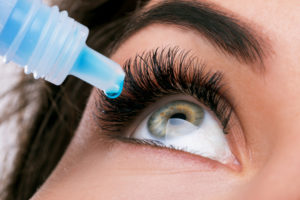Frequently Asked Questions About Dry Eye
- Posted on: Jul 22 2021
 Formally known as keratoconjunctivitis sicca, dry eye is an all-too-frequent condition that may become chronic. Board-certified ophthalmologist Gregory Pamel of Pamel Vision and Laser Group answers common questions about dry eye.
Formally known as keratoconjunctivitis sicca, dry eye is an all-too-frequent condition that may become chronic. Board-certified ophthalmologist Gregory Pamel of Pamel Vision and Laser Group answers common questions about dry eye.
What is Dry Eye?
When tears cannot provide sufficient lubrication, dry eye results. Not only are dry eyes irritating, but lack of tears can lead to eye infections. Reading and other normal tasks become more difficult.
A comprehensive eye exam measuring the quality and quantity of tears is necessary for a dry eye diagnosis.
What Causes Dry Eye?
Although anyone may develop dry eye, it occurs most often in older people. Because of hormonal changes due to pregnancy and menopause, women are more likely to experience dry eye. Environmental factors play a role. Dry climates can lead to dry eye, as can time spent at high altitudes such as in airplanes.
Patients with dry eye should tell their doctor about any medications they take, whether over-the-counter or prescribed. Sometimes, just changing medication solves the problem. Dry eye is a side effect of many drugs, including:
- Antidepressants
- Antihistamines
- Decongestants
- High blood pressure medications
- Hormone replacement therapy
Dry eye is an occasional side effect after LASIK surgery. Those with certain medical conditions are more prone to dry eye, including lupus, rheumatoid arthritis or thyroid disease.
What Are Symptoms of Dry Eye?
Eye dryness per se is not the only symptom of this condition. A feeling of having something in the eye or a stinging sensation are common. Other symptoms include:
- Blurry vision
- Contact lens issues
- Difficulty seeing at night
- Light sensitivity
- Mucus strings
- Redness
- Watery eyes
How is Dry Eye Treated?
Eyedrops are the basic treatment for dry eye. Over-the-counter, preservative-free eyedrops may suffice for mild, occasional bouts of dry eye, but if these artificial tears do not provide relief it may be necessary to visit an experienced ophthalmologist like Dr. Gregory Pamel.
After an examination and diagnosis, treatment options may include:
- Prescription eyedrops designed to increase tear production.
- Blocking tear ducts with removable gel plugs for tear conservation.
- Oral antibiotics to fight inflammation.
- Eye massages and light therapy.
- Special contact lenses.
Can You Prevent Dry Eye?
While not all cases of dry eye are preventable, there are steps that lower the risks. These include always wearing sunglasses whenever outdoors in the daytime, staying hydrated and remembering to blink regularly when looking at screens. Make sure there is proper humidity in the home and workspace.
Smoking can exacerbate dry eye; just one more reason to quit.
Contact Us
If you are experiencing dry eye symptoms, contact Pamel Vision and Laser Group and schedule a consultation with Dr. Gregory Pamel. He will answer all of your questions and determine the appropriate treatment for your needs.
Posted in: Dry Eye




